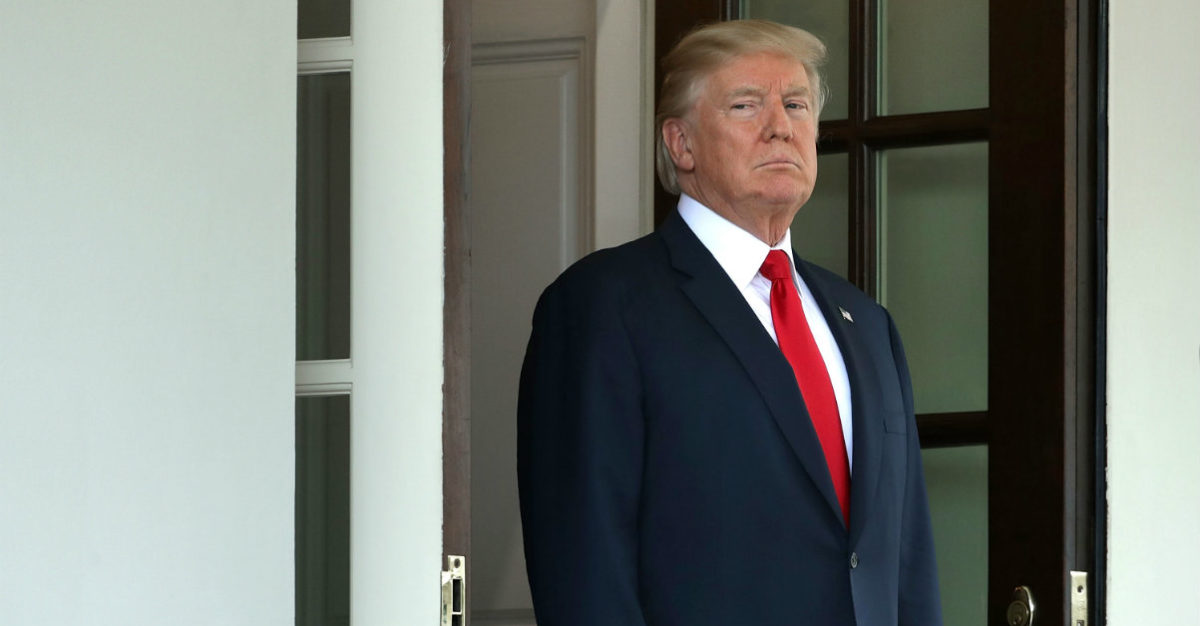
A conservative law professor on Thursday said Democrats’ impeachment of President Donald Trump is based on a theory that would outlaw the kind of political conduct ubiquitous among American politicians since President Abraham Lincoln was in office.
In an op-ed for the New York Times, Josh Blackman, a constitutional law professor at the South Texas College of Law Houston, asserted that Trump’s “request that President Volodymyr Zelensky of Ukraine announce an investigation” that would “perhaps” politically damage Democratic frontrunner Joe Biden does not amount to an abuse of power because all politicians make decisions with their political future in mind.
“Otherwise legal conduct, even when plainly politically motivated — but without moving beyond a threshold of personal political gain — does not amount to an impeachable ‘abuse of power.’ The House’s shortsighted standard will fail to knock out Mr. Trump but, if taken seriously, threatens to put virtually every elected official in peril,” Blackman wrote. “The voters, and not Congress, should decide whether to reward or punish this self-serving feature of our political order.”
Though criticizing the legal brief submitted by the president’s lawyers as being “far too political” in tone and noting that he disagreed with Trump’s request for an investigation “as a policy matter,” Blackman argued that obtaining a political benefit from otherwise lawful conduct is not an impeachable offense.
The constitutional law professor cited President Lincoln’s strategy to maintain political power in Indiana at the height of the Civil War by urging Union Gen. William Sherman to permit his troops to leave the battlefield and vote in the state’s election.
“ What was Lincoln’s primary motivation? He wanted to make sure that the government of Indiana remained in the hands of Republican loyalists who would continue the war until victory. Lincoln’s request risked undercutting the military effort by depleting the ranks. Moreover, during this time, soldiers from the remaining states faced greater risks than did the returning Hoosiers,” Blackman wrote. “Lincoln had dueling motives. Privately, he sought to secure a victory for his party. But the president, as a party leader and commander in chief, made a decision with life-or-death consequences. Lincoln’s personal interests should not impugn his public motive: win the war and secure the nation.”
Blackman concluded that the issue of “personal political benefits” secured by politicians’ policy decisions, such as Lincoln “preserving a unified nation during the Civil War,” or Trump “asking a foreign leader to investigate potential corruption,” should be adjudicated by voters not lawmakers.
Blackman did not address, however, the overwhelming evidence indicating that Trump did not request an actual investigation into Biden or corruption, and instead just sought to secure a public announcement of the investigation. Nor did he address whether such a distinction would change his analysis.
Law&Crime reached out to Blackman regarding this point. Here’s what he said:
President Trump may have reasonably believed that merely asking for an announcement of an investigation would be sufficient. That is, he would not need to follow through and supervise how the Ukrainians manage their affairs. The announcement would line up all the principals in place, and the foreign government could conduct the investigation as they see fit. Or he may have changed his mind after the phone call about what was actually needed. Priorities do shift.
The more difficult question is what is the appropriate burden of proof for an impeachment conviction. It is not Trump’s burden to show that he wanted an investigation, and not merely an announcement of an investigation. I think it is the House’s burden to show that Trump did not want an actual investigation, but only the announcement. I think the evidence does show he wanted an announcement about an investigation, and the evidence is silent about the follow-up. That absence of evidence, in my mind, is not sufficient to convict. We can certainly draw an inference that he didn’t care about the actual investigation, and it is a reasonable inference, but not enough in my mind to remove a President.
Marty Lederman, a constitutional law professor at Georgetown University Law Center, said Blackman’s attempt to normalize Trump’s behavior was dangerous.
“This might be the greatest danger of all–the effort to establish the narrative and expectation that this is just the sort of thing ‘politicians’ do all the time when given control of the nation’s law enforcement and diplomatic functions,” Lederman wrote.
Editor’s note: this story was updated post-publication to add a response from Prof. Blackman.
[image via Chip Somodevilla and Getty Images]